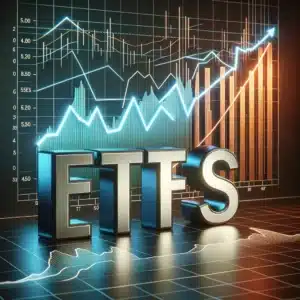UCITS funds, governed by EU regulations, consolidate European financial investments, offering a common framework for cross-border mutual funds.
Launched for unified financial services and regulated transactions across the EU, Undertaking for Collective Investment in Transferable Securities (UCITS) provides secure and flexible investment options, ensuring diverse portfolios and regulatory safeguards for investors at retail and institutional levels.
If you are looking to invest as an expat or high-net-worth individual, which is what I specialize in, you can email me (advice@adamfayed.com) or WhatsApp (+44-7393-450-837).
These investments are subject to market risks; expat investors are advised to seek guidance from a qualified expat financial advisor for personalized expat financial advice and financial planning services.
UCITS Definition
An Undertaking for Collective Investment in Transferable Securities receives contributions from individual and institutional investors collectively. In exchange, the UCITS holds cash and investment securities such as bonds and equities.
How Does a UCITS Fund Operate?

Structured similarly to mutual funds, UCITS shares common features, regulatory standards, and marketing approaches.
A means of achieving worldwide diversification for American investors, investors seek to profit from favorable market conditions inside the portfolio.
Investors can profit from the managers’ experience in choosing securities through the option, which is managed by qualified fund managers.
This system is acknowledged by investors, who give fund managers the power to make investment decisions.
By selling their shares on the open market, investors are free to withdraw from the fund whenever they choose.
Investors in the US should be aware that these may be categorized by the IRS as passive foreign investment corporations, which could mean that they will be subject to more complicated tax laws than traditional mutual funds.
UCITS Regulations and Guidelines
An undertaking for collective investment in transferable securities adheres to stringent regulatory and operational criteria within the European Union, including:
- The fund and its management are typically situated in a tax-neutral EU member state (for instance, Ireland).
- Operating under the laws of its home member state, once licensed, a UCITS can extend its reach to other EU nations and global investors. Before marketing to investors, the fund must provide legal notice to the targeted state or country.
- Investors must be notified through a Key Investor Information Document, usually accessible on the fund’s website. Approval of the fund is also mandatory.
- Investors must receive a fund prospectus (usually available on the fund’s website), and the fund is obliged to submit both annual and semi-annual reports.
- Any instance of share issuance, sale, or redemption by a UCITS necessitates making pricing notifications accessible to investors.
What are UCITS ETFs?

These investment options are exchange-traded funds with safety measures.
They enforce diversification and restrict any holding to not exceed 10% of the fund’s NAV.
The fund is liquid and enables investors to sell shares at any time.
Additionally, they’re supervised by an independent custodian to secure investor assets during the financial instability of the provider.
Some examples of UCITS-compliant ETFs:
- Vanguard FTSE 100 UCITS ETF
- iShares Core S&P 500 UCITS ETF – EUR – representing 500 major US companies
- SPDR FTSE UK All Share UCITS ETF – providing exposure to 600+ shares on the London Stock Exchange
- iShares Dow Jones Industrial Average UCITS ETF – tracking 30 large US companies
- iShares Core MSCI World UCITS ETF – gives exposure to developed countries
Robust regulations on fund management, diversification, asset protection, and service provider administration give these ETFs a number of benefits, including optimal risk protection.
By guaranteeing transparency, liquidity, and regular reporting, investors gain from a streamlined prospectus and key investor information document.
Investors can see into past performance and volatility by using ratings agencies like S&P and Morningstar.
Pained by financial indecision?

Adam is an internationally recognised author on financial matters with over 830million answer views on Quora, a widely sold book on Amazon, and a contributor on Forbes.

